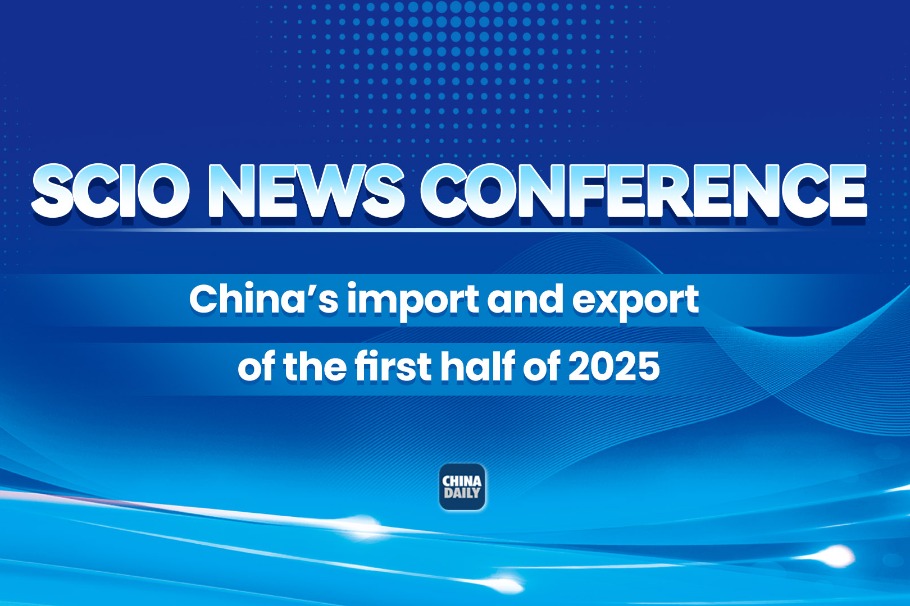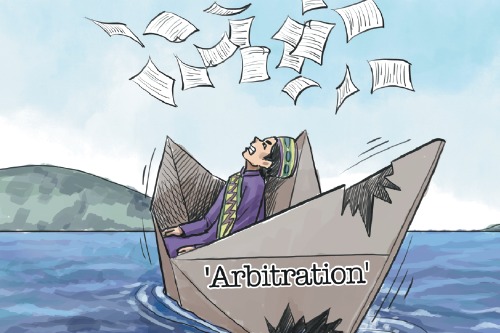Manila violating international law with US support


Philippine President Ferdinand Marcos Jr. is scheduled to deliver a keynote speech at the annual Shangri-La Dialogue, which will be held in Singapore from Friday to Sunday. Given the rising tensions in the South China Sea, he is likely to use the occasion to hype up the South China Sea issue, especially its maritime dispute with China, to gain sympathy from the international community.
But the fact is that it is the Philippines that has been challenging China's territorial integrity and violating its maritime rights by illegally claiming sovereignty over some islands and reefs in the South China Sea, and blatantly denying the "gentlemen's agreement" the two sides reached on managing such disputes. By frequently provoking China and spreading false narratives, the Philippines has breached international law.
First, Manila illegally initiated the South China Sea arbitration case in 2013, challenging the authority of international law.The Philippines attempts to concoct a "legal basis" by distorting history to claim sovereignty over some islands and reefs in the South China Sea.
The Arbitral Tribunal ruling of 2016 frequently mentioned by the Philippine government is full of loopholes in terms of procedure, entities' rights, evidence and staff composition. The tribunal ignored the "principle of state consent", illegally expanded and abused its powers, dealing a heavy blow to international law.
Although former Philippine president Rodrigo Duterte had said the arbitration was just a piece of paper which should be thrown into the trash bin, the current Philippine government considers it a "legal basis" for its arbitrary and aggressive actions.
In February, the Philippines' Senate approved the "Maritime Zones Act", which includes China's Huangyan Island and most of the islands and reefs in the Nansha Islands in its maritime jurisdiction. The act is aimed at consolidating the illegal ruling on the South China Sea arbitration. In reality, however, the ruling has failed to control the risks and, instead, aggravated tensions and widened differences, which could lead to conflict, harming regional peace and stability.
Second, the Philippines has signed bilateral agreements with the United States, inviting the latter to intervene in the maritime dispute and disturb the regional order. As a matter of fact, the US has played a key role in raising tensions in the South China Sea, and yet the Philippines has chosen to invite "the wolf into the house" by signing "security cooperation" treaties with it, which ironically undermine its own sovereignty. Manila's move has jeopardized the South China Sea Code of Conduct talks and harmed the order-building process in the South China Sea.
Besides, since Washington considers Manila a military ally, it can use the bilateral agreements as an excuse to strengthen its military presence in the South China Sea. The US has already conducted so-called joint law-enforcement drills with the Philippines in the disputed waters, and labeled China's normal maritime law enforcement as "dangerous" and "aggressive" actions, citing the US-Philippines Mutual Defense Treaty as the basis for its actions and remarks.
From April 22 to May 10, the US and the Philippines held their largest-ever annual joint military drills called "Balikatan", a Filipino term that means "shoulder-to-shoulder". In April, the Philippines even allowed the US to deploy a new midrange missile launcher on its soil, further heightening tensions in the region.
The actions of both Washington and Manila violate the UN Charter, the spirit of the United Nations Convention on the Law of the Sea and the Declaration on the Conduct of Parties in the South China Sea, which says disputes should be settled by the countries directly concerned through talks and negotiations.
The events of the recent past make it clear that the US has signed the so-called mutual defense treaty with the Philippines to control its ally and achieve its strategic and geopolitical goals. Yet the Philippines has gladly turned itself into an accomplice of the US.
Third, the Philippines is reneging on its commitments and violating international law. During the early days of the Marcos Jr. administration, Manila had previously adhered to the "gentlemen's agreement". Under this agreement, Beijing permitted Manila to deliver essential supplies to the crew stranded on the vessel intentionally grounded on Ren'ai Reef in 1999 from a humanitarian perspective. In return, Manila agreed not to refurbish the stranded ship.
But later, possibly on the coaxing of the US, the Marcos Jr. administration denied the existence of any "gentlemen's agreement". Since the commitment made by the previous government of the Philippines is an agreement according to international relations norms, the denial of the "gentlemen's agreement" violates the principle of estoppel in international law. Furthermore, the Philippines was found transporting construction materials to the reef to build solid structures there in an attempt to permanently occupy the maritime feature, infringing upon China's sovereignty.
The Philippines' abuse of China's goodwill is a blatant provocation. From initiating the South China Sea arbitration case to denying the existence of the "gentlemen's agreement", the Philippines has violated the spirit of international law and tarnished its international image.
Since the consequences of its actions will eventually hinder its economic development, the Philippines should stop being led by the nose by the US, respect international law and resolve the maritime disputes with China through dialogue and negotiations.
The author is an associate research fellow at the People's Liberation Army Academy of Military Sciences.The views don't necessarily represent those of China Daily.
If you have a specific expertise, or would like to share your thought about our stories, then send us your writings at opinion@chinadaily.com.cn, and comment@chinadaily.com.cn.
































